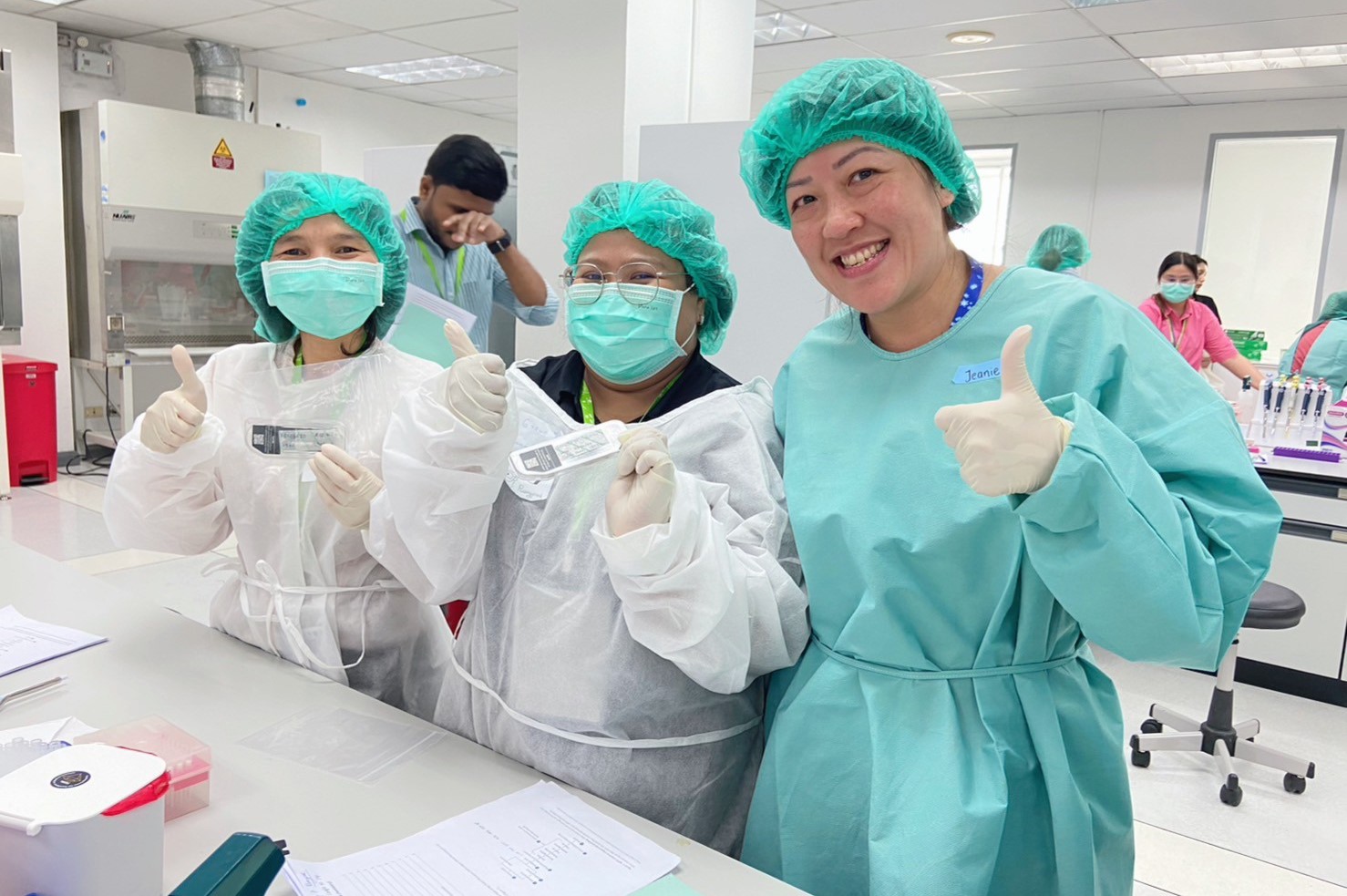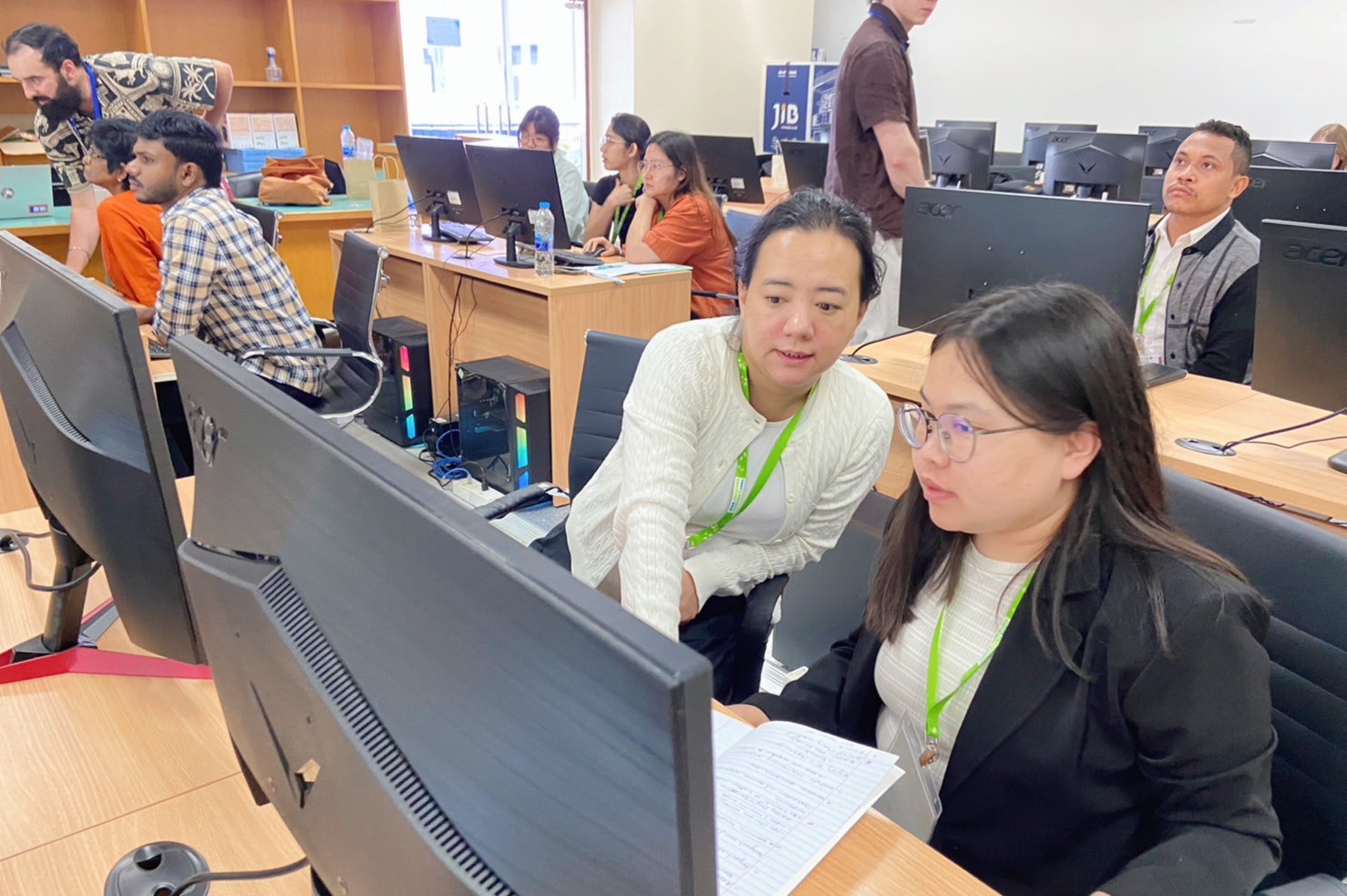Global partners collaborate to strengthen technical capabilities in SEARO countries for MPXV Genomic Surveillance
Within the short span of two years, the World Health Organization (WHO) declared at least two public health emergencies of international concern (PHEICs) regarding Mpox. The initial PHEIC was declared in July 2022 amid a global outbreak that rapidly spread to countries where the disease had not historically been present. Following a decline in the number of cases worldwide, this first PHEIC status was lifted in May 2023. However, not long after, a second PHEIC was declared again in August 2024 - this time, due to the emergence and spread of a new, more transmissible Mpox strain belonging to a historically deadlier clade (i.e. clade 1).
While this outbreak of Mpox by Clade 1b has primarily affected the African continent to date, imported cases have already been detected in Asian countries highlighting the public health risk to the Asian region. Ongoing surveillance is essential to ensure that any cases are promptly detected and treated, and control measures are implemented before the virus spreads further.
Many of the existing molecular diagnostics (such as PCR) were unable to identify and differentiate the new clade 1b from previous Mpox clades. Fortunately, whole genome sequencing (WGS) through next generation sequencing (NGS) provides an early detection and preparedness tool that enables countries to accurately identify imported and circulating Mpox strains. However, Mpox genomic surveillance is technically complex and some national laboratories in the Southeast Asia region have limited NGS capabilities, thereby presenting an urgent need for technical workforce training.
In response to the need, the Asia Pathogen Genomics Initiative (Asia PGI through Duke-NUS Medical School, Singapore) together with the WHO South-East Asia Regional Office (WHO SEARO), ARTIC Network and the Department of Medical Sciences, Ministry of Public Health, Thailand co-organised a technical training workshop titled “MPXV Genomic Surveillance.”
Held from 10-14th March 2025 in Bangkok, Thailand, the workshop brought together 16 participants from 7 SEARO countries (Bangladesh, Bhutan, India, Maldives, Sri Lanka, Thailand and Timor-Leste). The workshop objectives were to:
- Enhance technical capacity for Mpox virus (MPXV) sequencing using next-generation sequencing (NGS) and genomic analysis;
- Facilitate the adoption of standardised genomic surveillance protocols;
- Promote data sharing and collaboration; and
- Integrate MPXV genomic surveillance data into public health response.

Speakers presenting at the workshop (Photo credit: NIH Thailand)

Participants and trainers in the wet lab portion of the workshop (Photo credit: NIH Thailand)

Participants and trainers in the dry lab portion of the workshop (Photo credit: NIH Thailand)
Attendees gained hands-on experience in both laboratory procedures and computational bioinformatics, covering the end-to-end process from genomic sample preparation to data analysis. In addition to technical training, the workshop featured sessions dedicated to exploring various platforms and practices for MPXV data sharing, discussing their benefits and challenges in fostering regional collaboration.
"Strengthening genomic surveillance through hands-on training is essential for early detection and effective response to emerging threats like Mpox,” notes Dhamari Naidoo, Public Health Laboratory Scientist, WHO South-East Asia Regional Office. “This collaboration demonstrates how regional partnerships can accelerate national capacities and build a stronger, more resilient public health system."
Representatives from the Thai National Institute of Health agreed, stating that “Collaborative training initiatives are essential for advanced genomic epidemiology and outbreak preparedness. By equipping scientists with the necessary tools, we strengthen the global capacity to detect, monitor, and respond to emerging infectious diseases. This workshop also enhanced the potential of personnel to be ready to cope with the Mpox outbreak effectively.”
As Mpox continues to pose a global health threat, collaborative efforts are essential in building a resilient surveillance network capable of informing outbreak preparedness and enhancing health security across the region.
Participants learning wet lab genomic sequencing techniques (Photo credit: NIH Thailand)
Group photo of workshop participants and trainers (Photo credit: NIH Thailand)